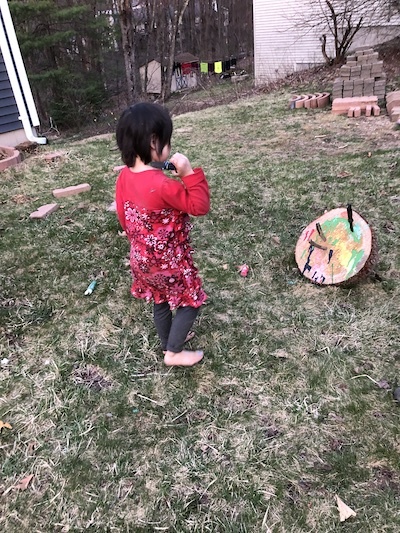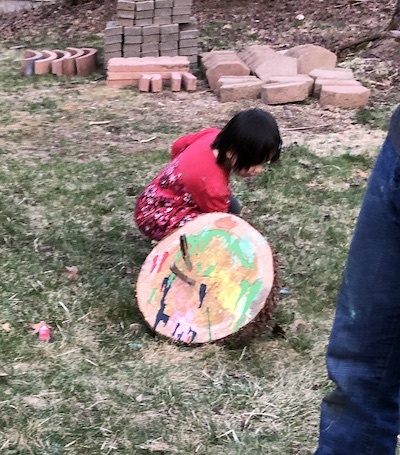the proper use of a knife
Mar. 12th, 2022 05:24 pmOn Thursday I sat in on a workshop critiquing some recent papers relating to Timorese culture. (It's one true blessing to come out of this pandemic: people from all over the world can meet and talk with ease via Zoom: participants were in Japan, India, Brazil, Timor-Leste, Canada, and the United States, and I, a non-academic, was allowed to audit.) All of the papers sounded fascinating (the one that critiqued NGO activity as, in some regards, a continuation of colonialism had me nodding like a bobblehead doll, as it's something I often think).
But what seized my imagination was Alberto Fidalgo Castro's discussion of the concept of lulik, which usually is translated as "sacred," as in uma lulik, sacred house. But Alberto and others point out that it's not that some things are lulik and others are not: anything has the potential to become lulik. He referenced an earlier paper of his (which I tracked down and downloaded) that gave five everyday cases of that--like the case of the knife. In the paper he writes:
In person he was more detailed: he said that a knife is for cutting, and if you stir in sugar with a knife, you are cutting the coffee, and this will cut your insides, your heart.
In the paper, another example was when he came back to the house where he was staying and, being tired, rested his head on the table. In this case he was told
I realize as I type this out that the people are saying the situation is lulik, not the object, whereas when he was talking about the concept, he seemed to be stressing a transformation in the object, too. I don't know whether it's accurate to say that both things are true or if it's even a distinction that's made in Timor, but that's what my mind fixes on: how the status of the object changes when it's misused--it seems so very, very applicable to so much of life.
1 Alberto Fidalgo Castro, "Personas y objetos en Timor Oriental: Relaciones lulik entre entidades," Ankulegi 21 (2017), 30 (my super rough translation).
2(same, 31).
But what seized my imagination was Alberto Fidalgo Castro's discussion of the concept of lulik, which usually is translated as "sacred," as in uma lulik, sacred house. But Alberto and others point out that it's not that some things are lulik and others are not: anything has the potential to become lulik. He referenced an earlier paper of his (which I tracked down and downloaded) that gave five everyday cases of that--like the case of the knife. In the paper he writes:
One Thursday, when I was drinking breakfast coffee in the kitchen, I couldn't find a spoon to help myself to some sugar, so I used a knife that was on the table. Ms. Rosita saw me, and scandalized, she asked me to stop doing that and ordered her son to find me a spoon. I didn't want to cause any trouble, so I told her that it wasn't necessary, that the knife was fine. Ms. Rosita was surprised at my response and explained to me that I couldn't take sugar with a knife, because it was lulik: it would give me an ailment of the heart1
In person he was more detailed: he said that a knife is for cutting, and if you stir in sugar with a knife, you are cutting the coffee, and this will cut your insides, your heart.
In the paper, another example was when he came back to the house where he was staying and, being tired, rested his head on the table. In this case he was told
Kole, ba toba iha kama. Toba iha meza ne'e lulik ("If you're tired, go sleep in your bed. Sleeping on the table is lulik." I sat up right away and asked why it was lulik to sleep on the table. They told me, Ema mate mak toba iha meza ... Ita ema moris, toba iha kama ("It's the dead who sleep on a table. We living people sleep in beds")2
I realize as I type this out that the people are saying the situation is lulik, not the object, whereas when he was talking about the concept, he seemed to be stressing a transformation in the object, too. I don't know whether it's accurate to say that both things are true or if it's even a distinction that's made in Timor, but that's what my mind fixes on: how the status of the object changes when it's misused--it seems so very, very applicable to so much of life.
1 Alberto Fidalgo Castro, "Personas y objetos en Timor Oriental: Relaciones lulik entre entidades," Ankulegi 21 (2017), 30 (my super rough translation).
2(same, 31).


